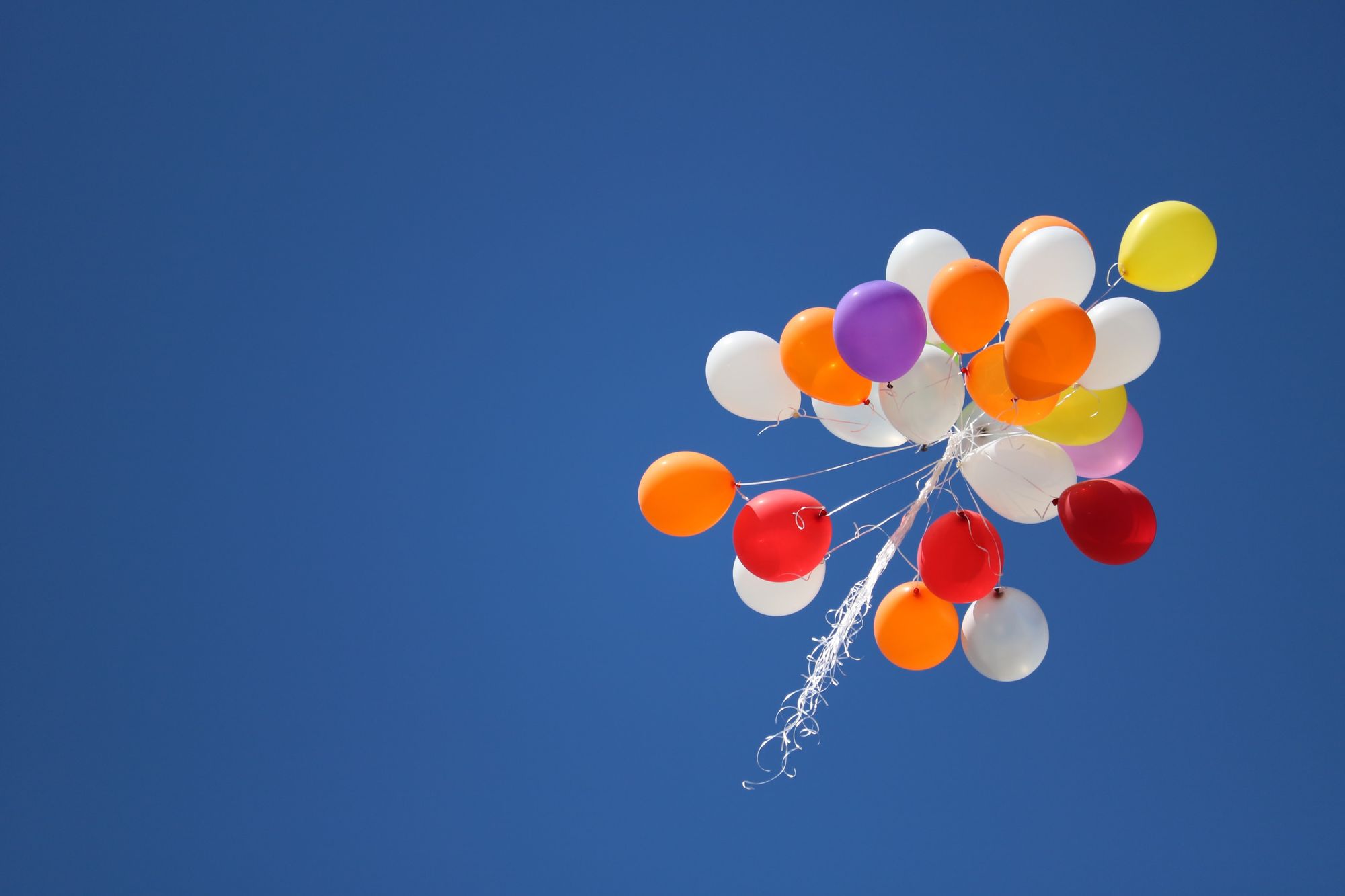
How and Why to Take a Social Media Break (and what happened when I did it)
Nothing is healthy in excess amounts, including social media. In this article, we share the reasons for and benefits of taking a social media break, as well as insight into what happens when a Chronically Online person decides to take one.

Content Writer @ Buffer
If you’re anything like me, you might spend hours and hours on social media. And if you do, then you’re probably familiar with the TikTok infinite scroll or doomscrolling on Twitter first thing in the morning. But excessive use of social media has been linked to increased depression, anxiety, lack of sleep, and other negative effects.
Of course, nothing is healthy in excess amounts – and the time we spend on social media is something we don’t often stop to think about and check. So in this article, we will share the reasons for and benefits of taking a social media break, as well as insight into what happens when a Chronically Online person (a.k.a. me) decides to take one.
Why take a social media break?
There have been multiple studies to corroborate the negative effects of social media. One 2022 cross-national survey conducted across the U.S., U.K., Australia, and Norway found that those who used social media for entertainment or to decrease loneliness during the pandemic experienced poorer mental health. And ExpressVPN, in a 2021 survey, found that 86 percent of 1,500 Americans reported negative impacts of social media on their happiness and self-image.
Social media can also become an addiction. Social media addiction is defined as “an uncontrollable urge to log on to and use social media, and devoting so much time and effort to social media that it impairs other areas of life.”
If any of this resonates, then you may need a social media break. And even if you’re not quite at the point of addiction or poor mental health yet, there may be some other signs that show you need to take a break:
- Frequent annoyance or frustration with trending posts or topics
- Comparing yourself to other people
- Having trouble sleeping and checking social media first thing upon waking up
- Experiencing or noticing an increase in anxiety or depression symptoms
- Spending a significant amount of time on social media
- Feeling disappointed for not receiving any engagement with a post or comment
- Losing focus and missing deadlines or neglecting chores
- Feeling physical distress if you can’t check your social media for a period of time
Remember, social media is designed to be addictive, so it’s not surprising that many of us find it hard to break the habit. But it might be time for a break if you find that social media impacts your mental health or productivity.
Potential benefits of taking a social media break
Stepping away from social media, even for a short time, has many benefits. Several studies have been conducted on the effects of limiting time on social media, resulting in some interesting findings:
- This 2021 study found that limiting social media use for a week improved well-being by preventing sleep problems.
- Another 2021 study found that most students reported a positive change in mood, reduced anxiety, and improved sleep during and immediately after a break from social media.
- The authors of a 2020 study asked participants to abstain from social media for a week. They report a significant increase in mental well-being and social connectedness after the period of abstinence.
- A 2018 study found that abstaining from social media use for about a week reduced stress in both typical and excessive social media users and that the effects were more pronounced in the latter group.
- And this 2018 study found that limiting social media use to about 30 minutes daily significantly reduced feelings of loneliness and depression.
Most studies have found positive connections between social media breaks and improved mental well-being. But what do those breaks look like in practice?
What happened when I took a social media break?
Statistics and data are great, but they’re not lived experiences. So to prepare for this article, I took a week-long social media break and documented my feelings about it. I picked the length of time and method because I felt it was realistic – social media is a big part of my job as a Content Writer at Buffer, so I can’t take too much time off. I also deleted the apps I use the most from my phone for the week.
Now that we’re on the same page, here is all the data and highlights from my time off (henceforth called Break Week) and the week after.
The Parameters
- Deleted Instagram, Twitter, TikTok, Whatsapp, LinkedIn, and Tumblr (yes, I still use Tumblr)
- For 7 days, from Sunday to Saturday
- Collected the hard data from iPhone’s ScreenTime tracking feature
- Took notes in my Notes app
The Stats: Before and After
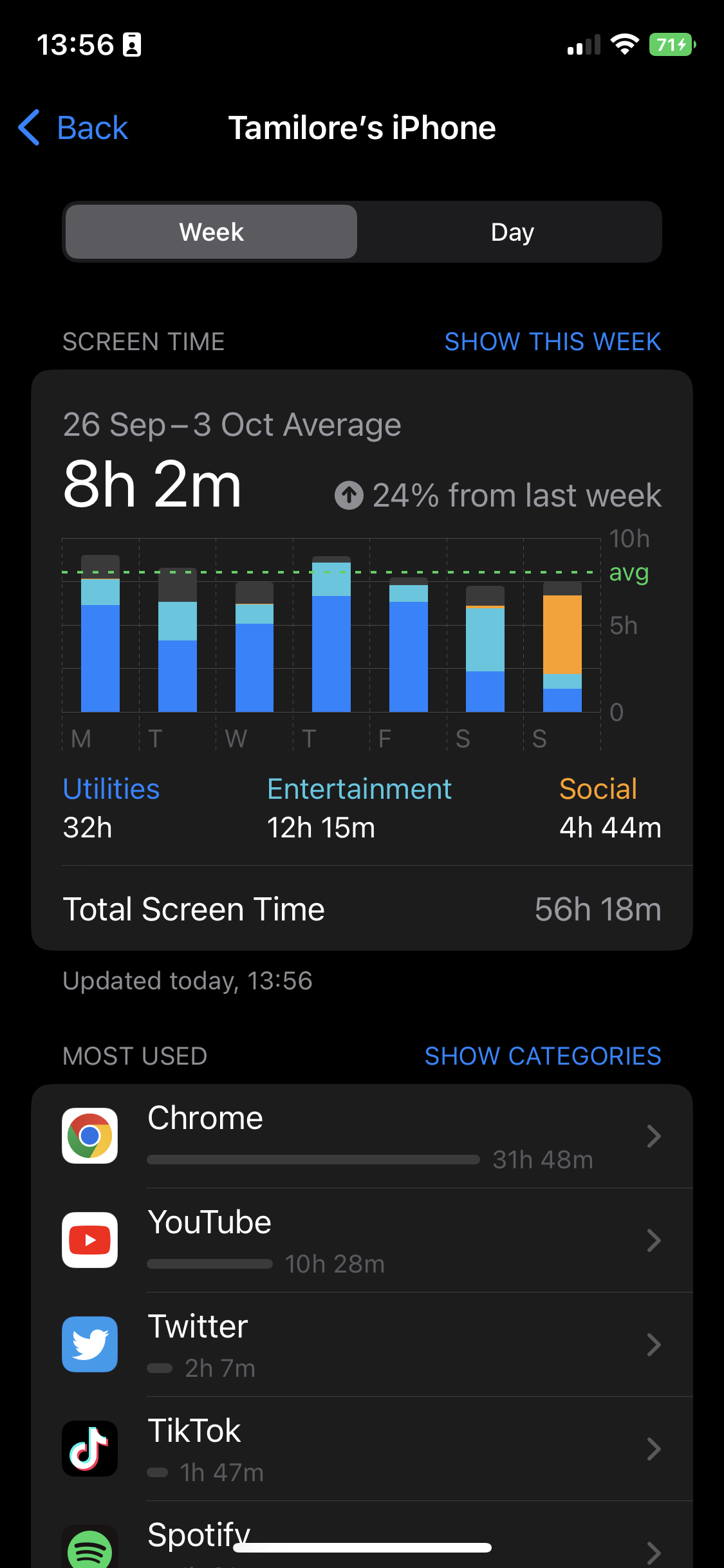
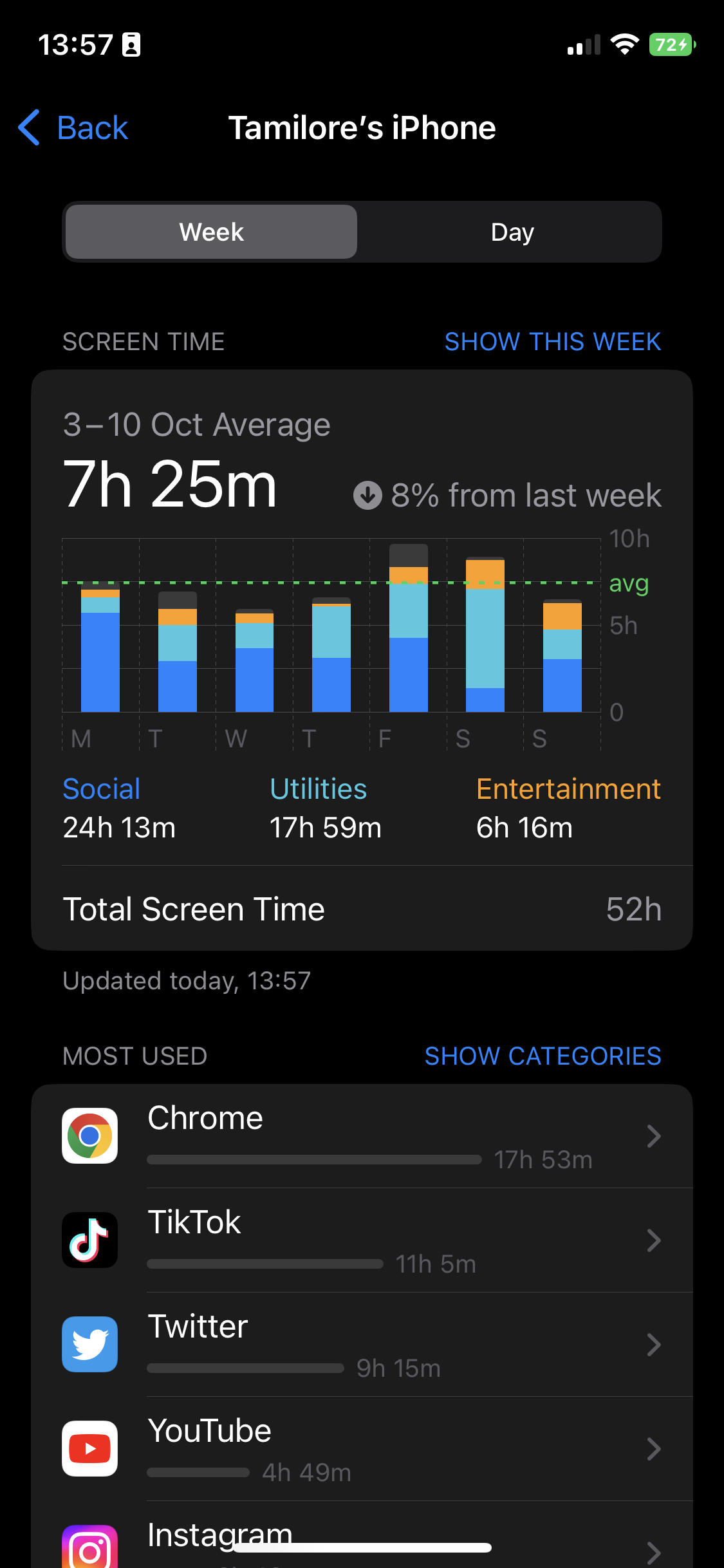
Total Screen Time: I actually spent more time on my phone during Break Week overall, but on apps like Chrome to read content and YouTube to watch videos. My time on Chrome dropped by nearly half the week after my Break.
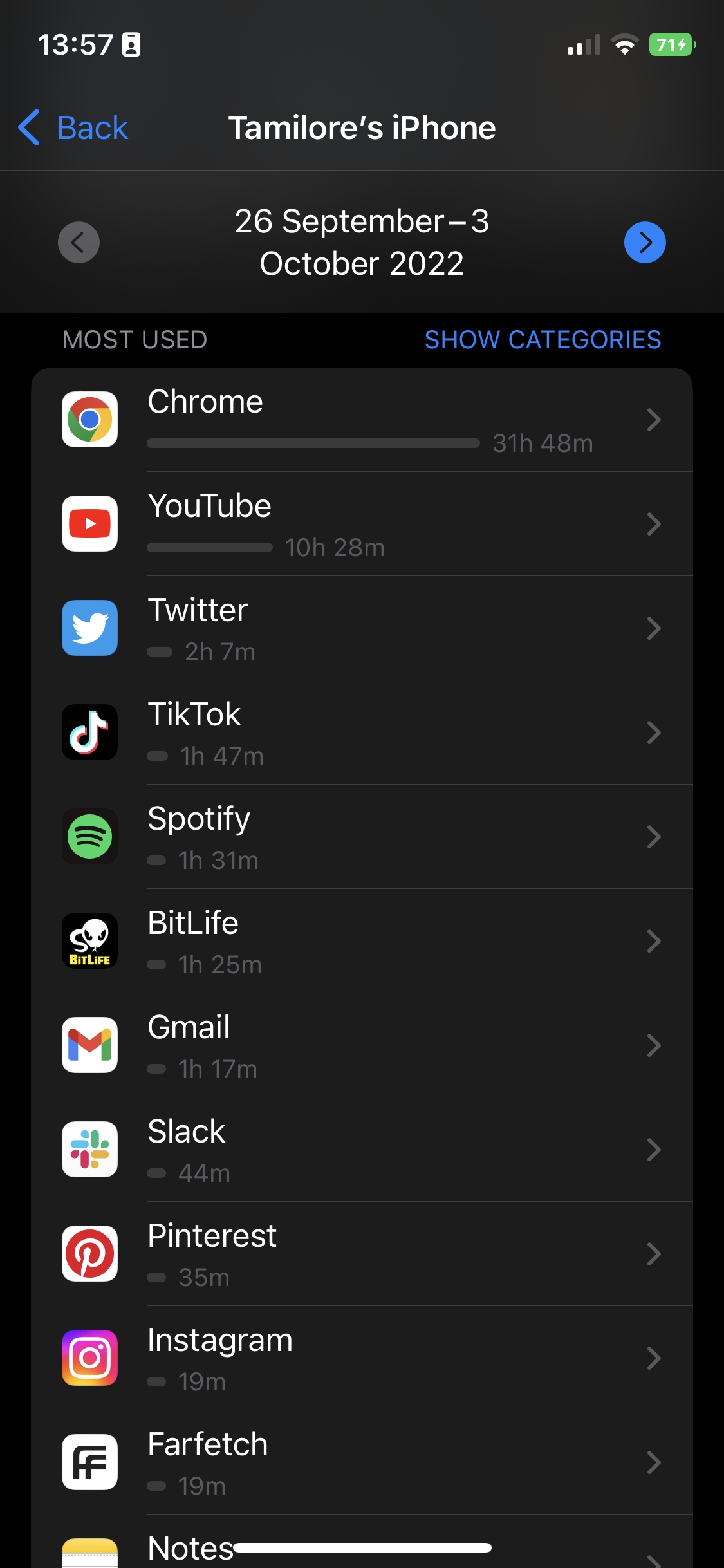
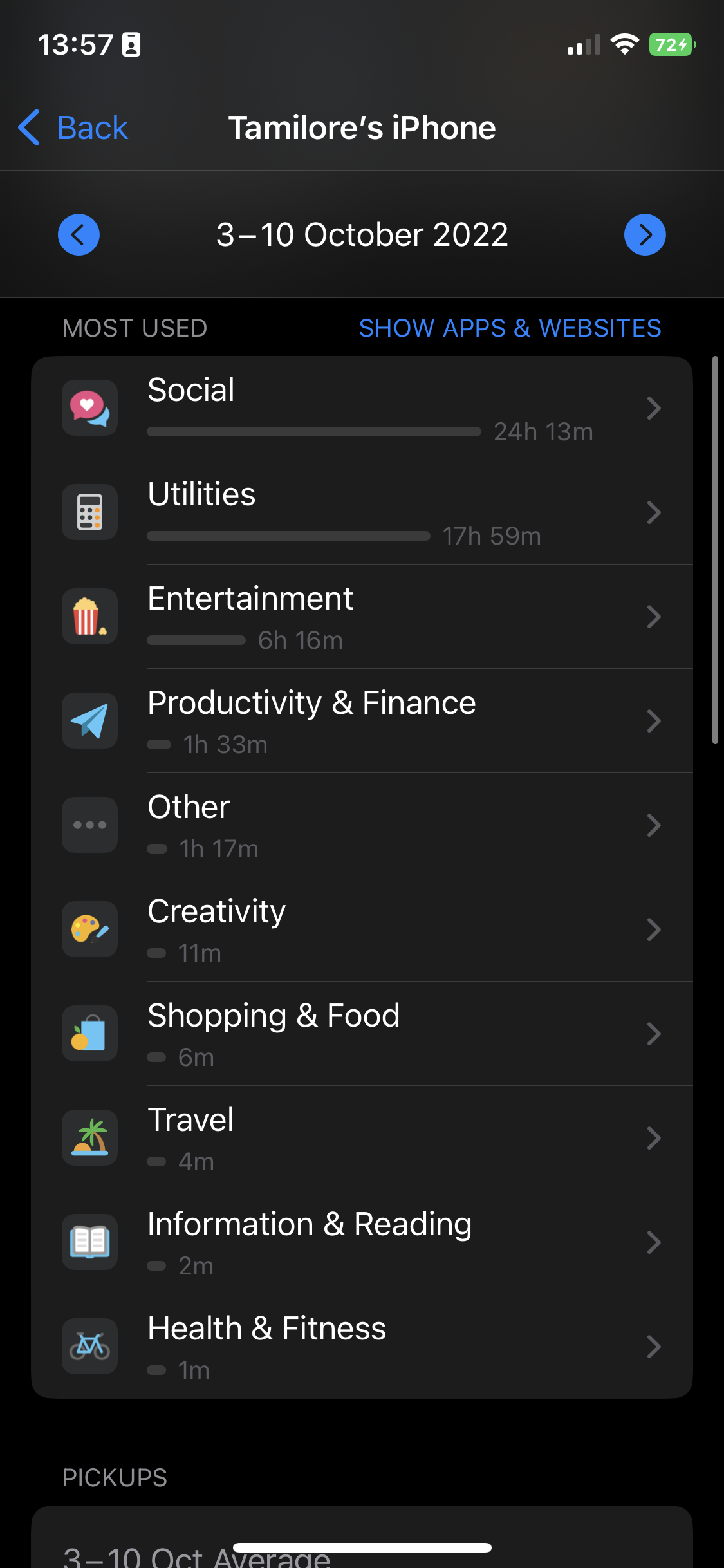
Most Used Categories: During Break Week, the time I spent on Social Media overall, even considering the times I had to redownload apps to get screenshots for articles, was WAY down. Despite the seeming drop in screen time, I reverted to my old habits once the Break was over, spending a total of 24 hours, 13 minutes (!) on social media apps the week after.
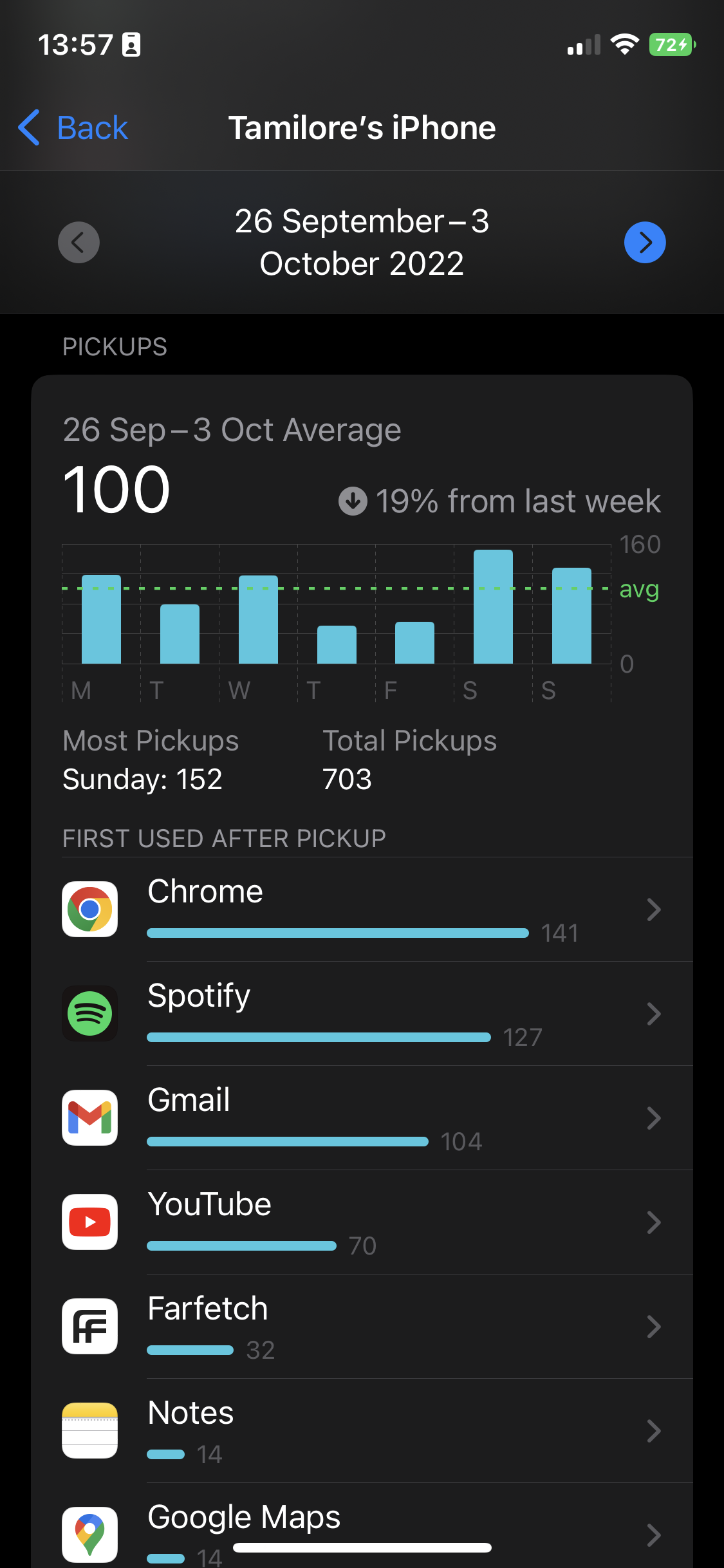
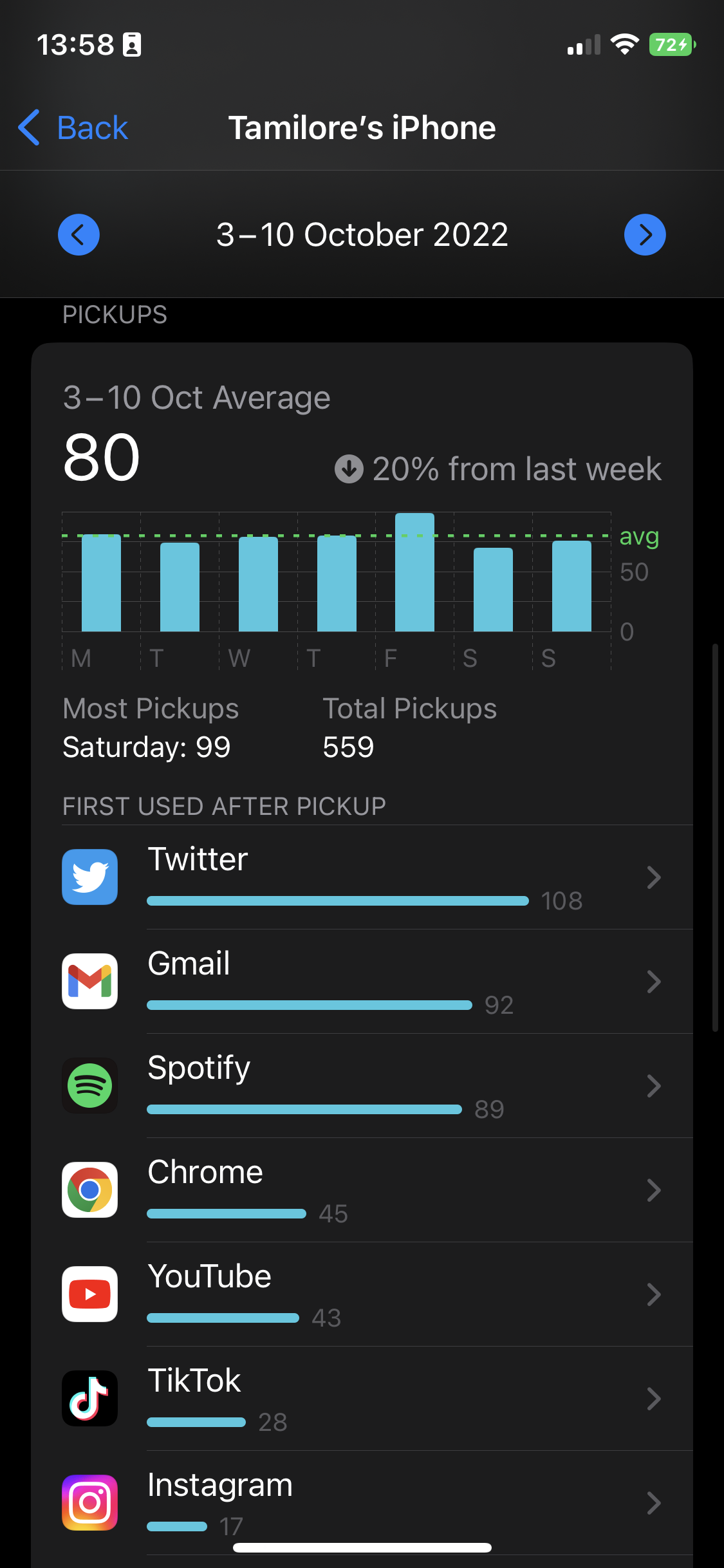
Pickups: I picked up my phone a lot more during Break Week than the week after. This is definitely because of my instinct to go for social media apps when I open my phone. I turned to my browser when I wasn’t met with my usual distractions. The difference between the two weeks is the apps I opened after picking up – Chrome was the most used during Break Week, while Twitter was my most used the week after. A funny note is the amount of time I spent on my usual shopping app, Farfetch, during Break Week – window shopping to self-soothe is very on-brand for me.
What did I learn from the experience?
Social media is a distraction and a method of procrastination for me
I often found myself reaching for my phone when I needed something else to occupy my time. Without the apps on my phone, I found other ways to occupy my brain for those moments. My screen time didn’t really change, but I spent more time reading, watching videos, and listening to music than usual. To quote my Friday log, “I’ve consumed so much random YouTube content this week that I just know my recommendations are forever altered.”
The FOMO hit me hard – but it wasn't as bad as I expected
Social media has become the first place many of us go when we see a breaking news headline, and ultimately the primary source of information for many people – myself included. So, without the apps on my phone, I often felt like I was missing something even though I was getting my New York Times newsletters and regular updates from Google News.
My notes reflected this as I stated multiple times that I didn’t feel tuned in to what was happening outside of my bubble. Even though it wasn’t quite news (depending on who you ask), my Tuesday log has a hilarious progression:
- 6:43 pm: Generally, FOMO isn’t as bad today – I’ve had lots of things to take my mind off social media
- 7:06 pm: The FOMO is back! A Nigerian artist called Burna Boy dropped a new video LIVE - and I’m missing the live tweet experience
I found myself wanting to share things that didn’t really need to be shared
I’ve become used to sharing on a whim, so not being able to take a picture or film a video and upload it wherever, or type out a quick tweet or LinkedIn post, felt odd.
One note from my Wednesday log said, “I got my parents a couple of nights at a beach resort for their anniversary, but I can’t post the pics of how cute they were taking all their pictures. Sad.” A bit dramatic, if you ask me.
However, I did find that once the cycle of wanting to share and then realizing I had deleted social media passed, I didn’t feel the urge as much. Even now, nearly a month later, I don’t update my social media as much as I used to. I may return to old habits eventually, but I’ve definitely gotten better at managing the instinct to post once I get inspiration.
Ultimately, although I had to redownload some apps for work purposes, the week and the time I took off were quite low-stakes. Nothing super interesting happened, at least not enough to warrant profound regret about my decision to take that particular week off.
All this is to say that taking a break, even if it's sporadic and once in six months, will cause you less discomfort than you think. It may even drive you to be a bit more creative with how you choose to spend your time online. And it will definitely drive you to rethink your relationship with social media and set healthier boundaries.
How to take a social media break
If you’re considering taking a break from social media, let’s discuss how to do it. Here are some tips:
Set a limit
One way to break the social media habit is to limit the amount of time you spend on it each day. Use a timer or app to track your usage, and stick to your limit. This will help you be more mindful of your time on social media and hopefully reduce the amount of time you spend on it overall.
Apple devices come with automated screen time tracking, and you can try apps like Space or Forest to help manage your usage.
Delete the apps
If setting a limit doesn’t work for you, try deleting the social media apps from your phone. This is a more extreme measure, but it can effectively break the habit. You can always redownload the apps if you feel like you absolutely need to – I often needed to get into one app or the other to grab screenshots or links. But you would be surprised how much there is to do without boredom-induced Instagram deep-dives into your university professor’s niece’s account.
Take a break from specific platforms
Another option is to take a break from the social media platforms you use most. If you find yourself spending hours on TikTok, for example, try taking a break from that app specifically. Come up with a reward system for every time you feel the urge to open the app and can resist to make it fun.
Find other things to occupy your time
When you find yourself with the urge to scroll through social media, try to find something else to do instead. Go for a walk, read a book, or call a friend. You can do plenty of things that don’t involve looking at a screen. In fact, you may find yourself picking up a new hobby – I discovered more podcasts during my time off.
Be realistic in your approach to taking time off
It’s important to be realistic when thinking about disconnecting from social media, especially if you currently spend a lot of time on it. Not everyone wants or needs to stay away from social media for extended periods of time – like everything in life, it’s essential to set boundaries.
But whether you choose to go cold turkey or take little chunks of time off, like one day a week or one week every month, you will likely see increased benefits for your mental and emotional health.
Have you ever tracked how much time you spend on social media? Let us know your stats over on Twitter @buffer! It's a judgment-free zone, promise.
Try Buffer for free
180,000+ creators, small businesses, and marketers use Buffer to grow their audiences every month.
Related Articles
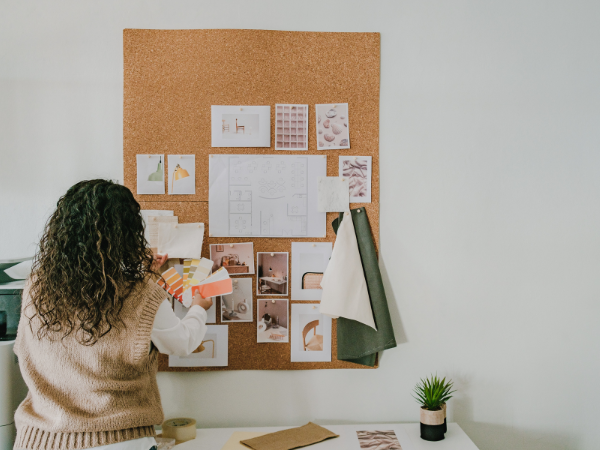
TikTok just introduced Bulletin Boards, similar to Instagram's Broadcast Channels. Here's what you need to know.
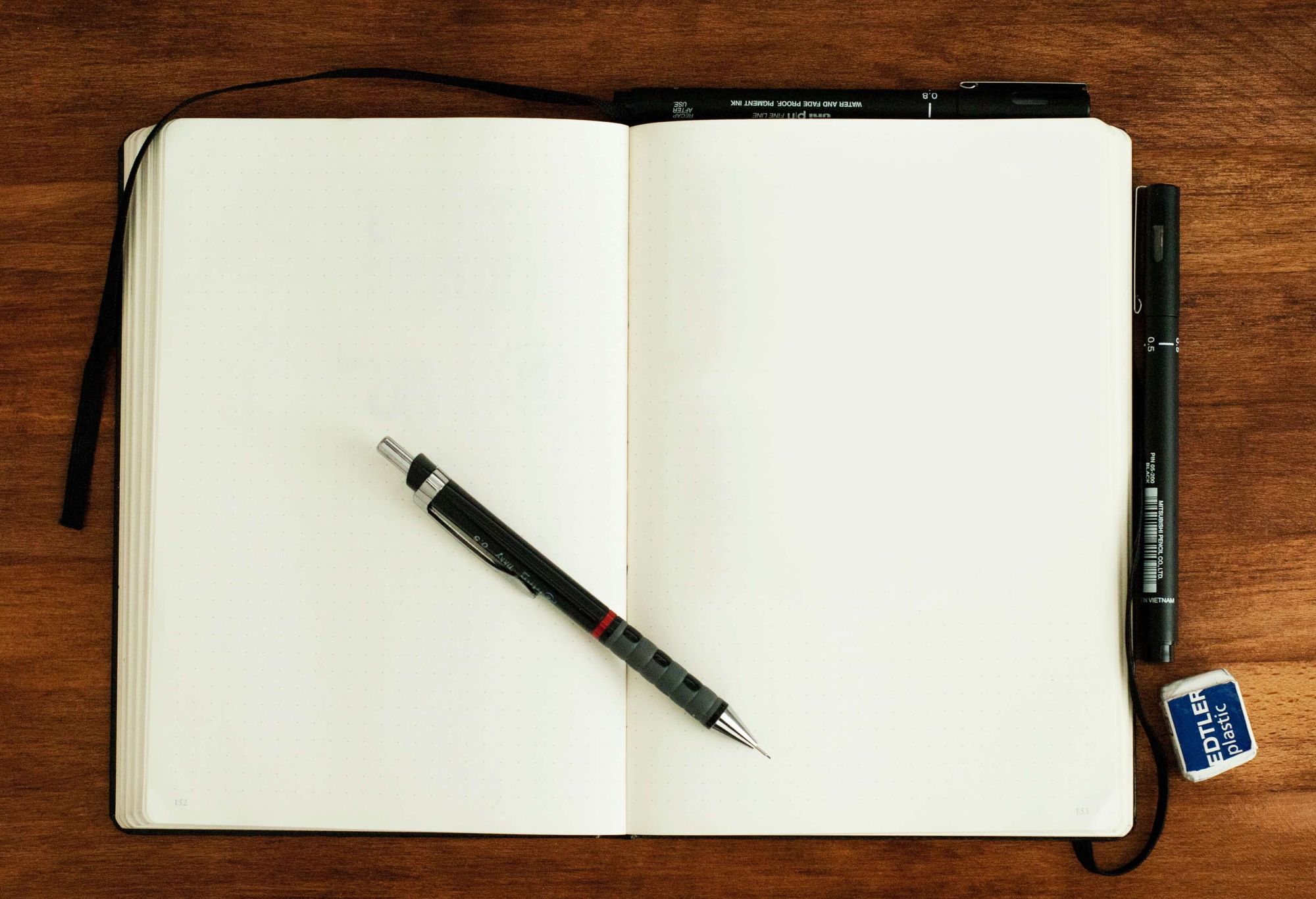
We've reopened submissions for the new, cohort-based version of the Buffer Guest Post Program. Learn more in this article.
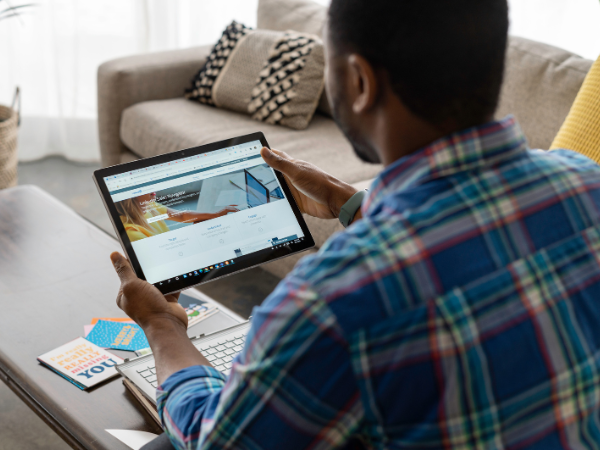
In this article, you'll find 20+ essential LinkedIn statistics that reveal the platform's reach, effectiveness, and continued growth.